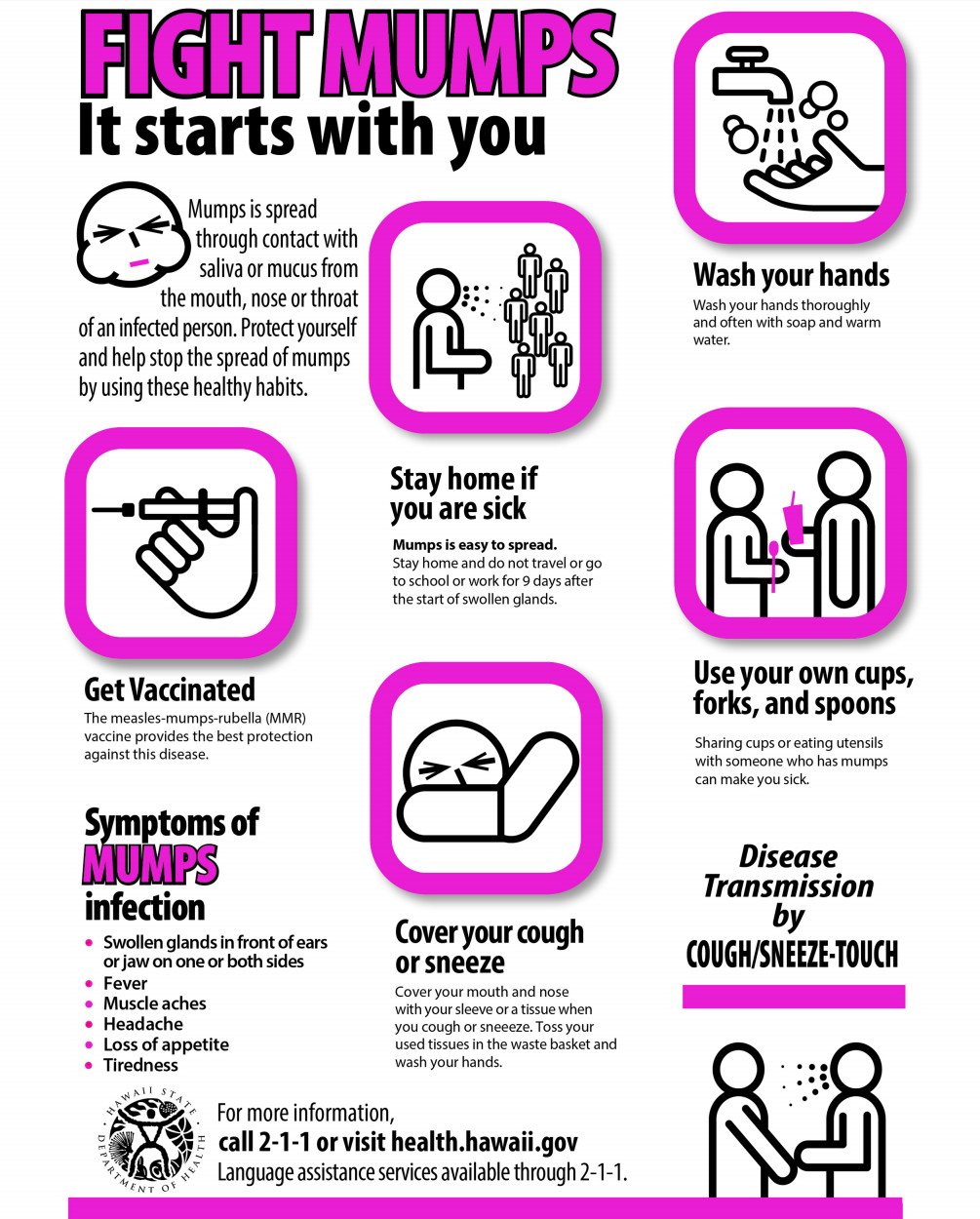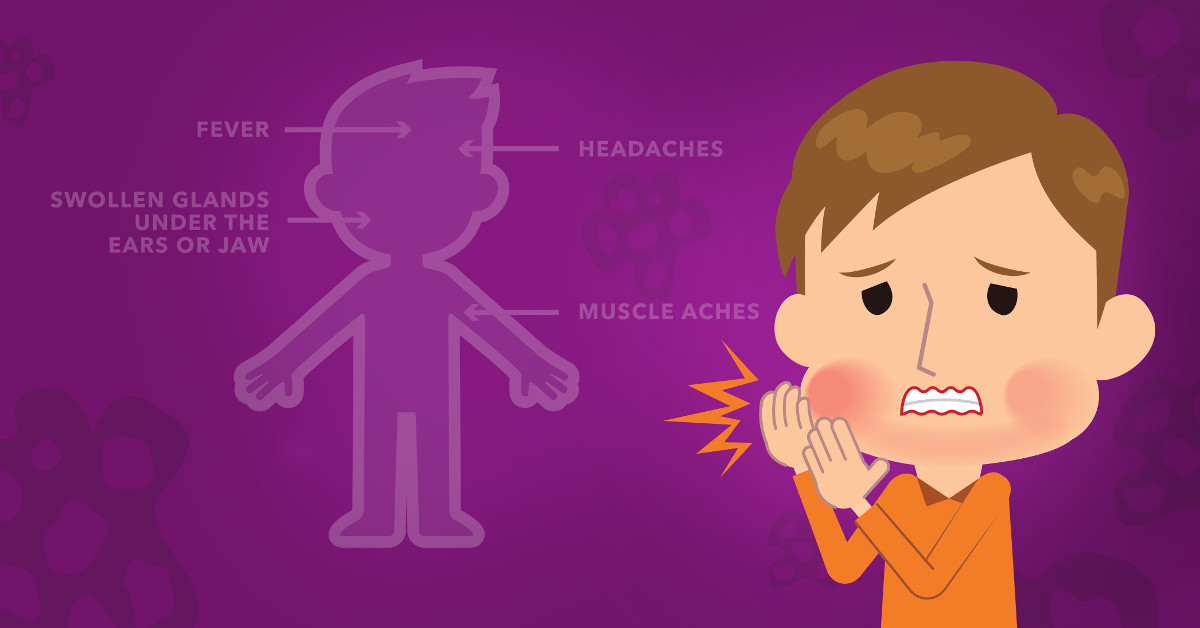(BIVN) – The number of mumps cases this year in Hawaii has reached 500, reports the Hawaii Department of Health. There have been 12 reports of complications from mumps infection (e.g., hearing loss, orchitis, etc.).
Health officials are recommending residents consider receiving an additional dose of the MMR vaccine as a preventive measure, to better arm them against the ongoing mumps outbreak.
“Since March, a steady stream of cases has been occurring, and we are now beginning to see more communities involved in the outbreak,” said State Epidemiologist Dr. Sarah Park in a Friday media release. “The disease continues to affect both vaccinated and unvaccinated individuals, which prompted us to review data from our cases and recommend an additional dose of MMR vaccine for those who meet the criteria below.”
From the health department:
To help prevent the spread of mumps, DOH recommends the following persons born in 1957 or later, especially those who live, work, or attend school in crowded conditions, receive a dose of MMR vaccine now: those who received one (1) MMR dose five (5) or more years ago; those who received two (2) MMR doses ten (10) or more years ago; and those with no or unknown vaccination history.
Since children routinely receive their second dose of MMR vaccine before entering kindergarten, the recommendation for the “outbreak MMR dose” applies to adolescents and young adults. University and college students are particularly vulnerable because they live, work, and/or attend school in crowded settings and tend to be in the age group in which most cases have been occurring. Therefore, university students, among other similar groups, are especially encouraged to receive the outbreak MMR dose as per the criteria below.
Patients suspected or diagnosed with mumps should remain at home to avoid spreading the disease to others. According to Hawaii Administrative Rules 11-156, a person with mumps may not attend school, work, or travel for nine (9) days after the onset of parotitis (swelling of the salivary glands). Those who have been exposed to mumps and are not vaccinated should not attend school, work or travel from day 12 through day 25 after exposure to the virus.
Mumps is spread easily through coughing, sneezing and touching objects or surfaces with unwashed hands. Symptoms include fever, headache, swollen glands in front of the ears or jaw, tiredness and muscle aches. The symptoms usually start 16 ‐ 18 days after infection with the virus, officials say, but the onset can range from 12 to 25 days. Most people with mumps recover completely in a few weeks.
To locate a vaccinating pharmacy near you, visit this DOH website, or call the Aloha United Way information and referral line at 2-1-1.

produced by the State of Hawaii Department of Health


by Big Island Video News7:58 am
on at
STORY SUMMARY
HAWAII ISLAND - Hawaii Department of Health recommends “outbreak MMR dose” of mumps vaccine as the statewide outbreak continues.